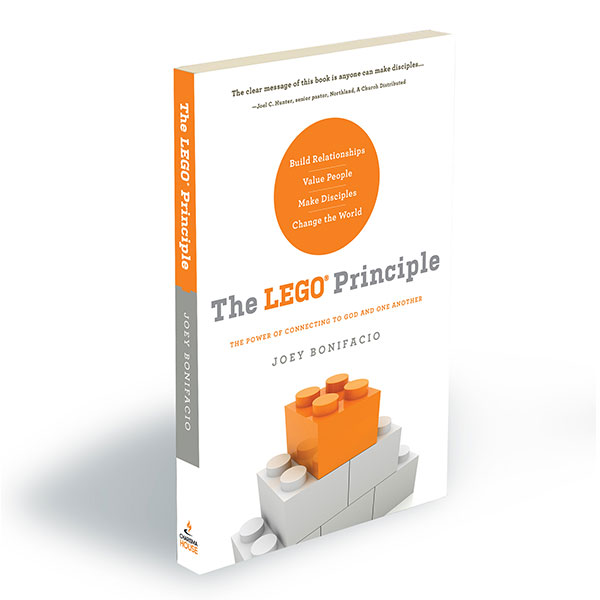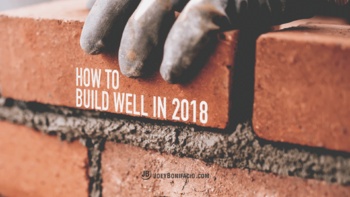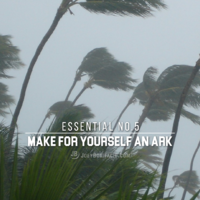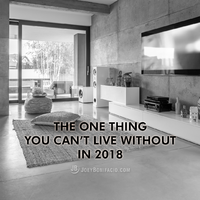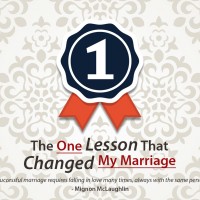Essential No. 5: Make for Yourself an Ark
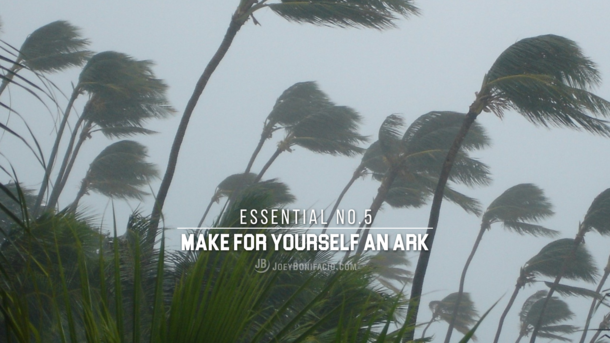
The word ark comes from the Hebrew word: “tebah” which means something more than a boat. It means a repository, “ a place where things can be stored for safety and preservation. Given this definition, there is a big difference between building a boat and building an ark.
It can be argued that every boat is meant to be a place of safety and is designed to preserve people while on a journey at sea. An ark or “tebah” however, has a more sacred side to it. Arks are meant to contain the presence of God and it is in His presence where we find safety and are preserved.
An ark in this context, therefore, was not just about safety and preservation but about securing and preserving what is sacred and valuable to God. Genesis 6:11-12 says: that all that God has created and that was meant to be good and for the good of mankind had been corrupted. Worse, all of life was threatened by violence that violated and jeopardized its existence.
God’s response as we have seen was to call a man, Noah, into his destiny, to empower him by His grace and give him the character to build-- to build an ark; a container for the sacred or valuable things that God has on this earth. In the case of Noah, it was for his family and the animals God had created. In our case, our families and God’s creation.
How to Make an Ark
The question is how. We take our cue from God’s instructions to Noah. Four times God used the word “make” in instructing Noah how to build the ark, here they are: Make rooms (Gen. 6:14), make them to specifications (6:15), make a roof (6:16a), and finally, make lower and second and third decks (6:16b).
Let’s start with making rooms. While Noah constructed a physical ark meant with rooms that contain God’s valuables (his family and God’s creation), we too should build a spiritual ark with rooms to contain all of God’s valuables in our lives.
Rooms connote two things: space and boundaries. Rooms are designated spaces in our lives where we can meet God, our families and find refuge and rest. Making room also means to have margins in our lives. Imagine a book or a document that does not have margins, not only does it look cramped, it feels that way too.
Making room is designating margins in our lives, spaces where we can spend time with God and our families as well as to attend to matters of health, a good night’s sleep, and some exercise.
Failure to create margins is the reason why we often find ourselves stressed and under pressure.
Rooms also speak of boundaries, limits to where we should go and not go. Appropriate margins and good boundaries are time-tested ways to weather the challenges we face, if not prevent them. The lack of margins and boundaries can sweep us into dangerous places when storms come.
Make Them to Specifications
God instructed Noah how to make the ark to specifications. The same way that arks, cars, houses are built with design specifications, our lives have specifications that will work best in challenging times.
Our spiritual lives start and end with our relationship with God, a relationship that has specifications. Genesis 26:5 gives us a glimpse of these specifications. It shows that God has charges (Heb. “mishmereth”), commandments (“mitsvah”), statutes (“chuqqah”) and laws (“torah”).
Charges refer to a more direct and unique specification that God has for us. By that I mean there are things that are meant just for us. In other words, we can’t simply copy-paste other people’s charges from God.
We need to know what His unique charge is to our lives. For instance, for some people drinking wine is a non-issue. But for others, God may charge you to not even have a drop. Why? Because we are all uniquely made. To some, wheat may be a health risk, while it may be the health secret of others.
Commandments or “mitzvah” refers to specific commands God has for a certain group of people. For instance, the Jews have very specific commands given to them but not to us. This is often where religious orders pose a problem, in that they want people to obey commands that were given to them.
Statutes or “chuqqah” refer to commands for specific times and seasons. It may be that God did not require you of a certain thing in your life, but is now requiring it of you because your role and season in life has changed. Laws or “torah” simply means God’s universal laws— as in “thou shalt not kill, thou shalt not commit adultery.”
Stormproof lives come when we know, obey, and align ourselves with God’s specifications.
Make A Roof
Roofs are made to keep unwanted things that can damage what’s in our homes. Imagine living in a house without a roof. Or maybe, you may have a roof but it has holes in it.
In the spiritual life, roofs refer to spiritual covering. These are family members, counselors, pastors, or others who can cover you from damaging elements of just living day to day. Rain, for instance, is not a bad thing but can damage what’s inside our homes without the covering of a roof.
Submitting ourselves to covering and a willingness to listen to others who have godly lives and have gone ahead of us is one of the best ways to storm-proof our lives. When we are willing to accept things others see in us, we become self-aware of our weaknesses, bad habits, and wrong practices and are able to deal with them accordingly.
Challenging times in our relationships, health issues, and financial woes can be avoided if we elect to establish people who can cover our lives. That’s a decision Marie and I did many years ago. It was another way of holding ourselves accountable.
Make Multiple Decks
Making an ark also means building rooms for others. Our lives cannot just be about meeting our needs and wants but should include meeting the needs and sometimes even the wants of others.
Making multiple decks means living a missional life that accommodates others. Through the years the Lord has allowed Marie and I to help others in their time of need. Interestingly, when our own time of need came, many of those whom we have helped have been the source of encouragement for us as well.
So there you have it, Essential No. 5 – Make an ark: make rooms, make it to specifications, make a roof over it, and make multiple decks.
My Comments Policy
While my site offers visitors the ability to converse, I have a few ground rules so that our conversations will remain civil and courteous.
1. You must register in order to leave a comment. I don’t entertain pseudo, anonymous or bogus individuals. This site is my home (it has a Home Page, get it). I don’t let strangers who don’t introduce themselves into my home.
2. I love questions. I love them because a lot of times they are similar to someone else’s questions and can even trigger other questions from others. Questions also keep us all sharp. This is also why I respond to them as best as I can and at the soonest possible time. I believe that group answering benefits more people than private email exchanges.
3. We don’t have to agree. Debates are welcome. However, whether it is with me or any other visitors of my site, my rule is this: disagree if you must but keep things civil. That’s just how I run my home, and you are a visitor here. No shouting; I have seen it done in writing. No cursing and no insulting.
4. I reserve the right to delete your comments. Like I said, this is my home. I do not have an obligation to publish your comments. As a human being, you may enjoy the freedom to express your opinions on your own site but not on mine. To be specific, I will delete your comments if you post content that is in my sole opinion: (a) snarky; (b) off-topic; (c) libelous, defamatory, abusive, harassing, threatening, profane, pornographic, offensive, false, misleading, or which otherwise violates or encourages others to violate my sense of decorum, civility or any law, including intellectual property laws; or (d) “spam,” i.e. an attempt to advertise, solicit, or otherwise promote goods and services. You may, however, post a link to your site or your most recent blog entry.
5. You retain ownership of your comments. I do not own them and I expressly disclaim any and all liability that may result from them. By commenting on my site, you agree that you retain all ownership rights in what you post here and that you will relieve me from any and all liability that may result from those posts.
6. You grant me the license to post your comments. This license is worldwide, irrevocable, non-exclusive, and royalty-free. By posting comments on my site, you automatically grant me the right to store, use, transmit, display, publish, reproduce, and distribute your comments in any format, including but not limited to a blog, in a book, video, or presentation.
In short, my goal is to host interesting conversations with caring, honest, and respectful people. I believe this clear and simple comments policy will facilitate this.











